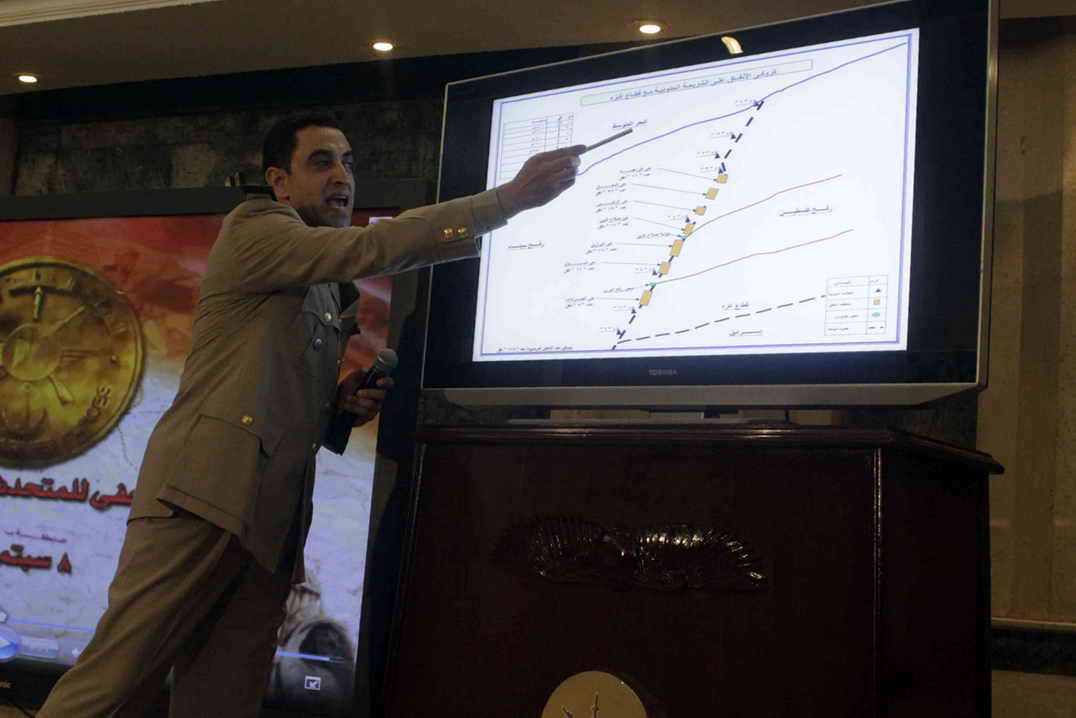It seems not a day goes by in Pakistan without the Israeli-Palestinian conflict making headlines. Entire generations have grown up seeing the region on our television screens as synonymous with perpetual conflict. From Yeshiva students gunned down in Jerusalem to the beleaguered residents of Gaza punished through economic blockades, the immense human suffering never ceases to shock.
I live hundreds of miles away from Jerusalem, in Karachi. But like so many people in Pakistan, I care about what happens in that part of the world. I care, not because it is a religious conflict as many here would like to believe, but because it is a human conflict, whose repercussions extend beyond the borders of Israel-Palestine and have a tangible impact on Jewish-Muslim co-existence elsewhere.
I don t claim to be an impartial observer in this conflict. Palestine is something I have grown up hearing about. My father and his siblings were leftists for whom Palestine represented a major third world struggle for freedom. My uncle went to Jordan in the 1970s to receive training with the Popular Front for the Liberation of Palestine.
By contrast, I studied at a liberal arts college in the United States, where I forged friendships with Jewish students and self-identified Zionists. It was while breaking bread at Shabbat that I truly understood just how closely related the Abrahamic faiths of Judaism and Islam really are.
Pakistan is not directly involved in the Arab-Israeli conflict, nor do Israel and Pakistan have any direct reason to be at odds. Rather, it is the occupation of Palestine that inhibits relations between the two countries. In the past, many Israeli heads of state have called for formal accords to be established and it is no secret both countries have had informal relations stemming back several decades.
In 2003, President Musharraf called for a public debate concerning the recognition of Israel. But public opinion in Pakistan was against any reconciliation unless there were concrete efforts towards the establishment of a Palestinian state. Two years later, in a move that raised many eyebrows, Pakistan s Foreign Minister Khurshid Kasuri met with his Israeli counterpart, Silvan Shalom, marking the first time a Pakistani and Israeli official did so publicly. The meeting was followed by protests in Gaza and across Pakistan. Since then, President Musharraf has reverted to Pakistan s traditional stance that there will be no recognition of Israel until the creation of a Palestinian state.
In March 2002, King Abdullah of Saudi Arabia proposed what has been called the Arab Peace Initiative in Beirut. The proposal calls for the establishment of a Palestinian state based on 1967 borders, with Israel accorded full recognition by Arab countries in return. The initiative, which was re-endorsed in Riyadh in 2007, makes clear that security for Israel is inextricably dependent upon justice and a sense of hope for the Palestinian people. It has been embraced by many Muslim states, including Pakistan, and seems like one of the last remaining hopes for peace in the region.
For those of us who reject apocalyptic theories of a clash of civilizations but are alarmed by growing polarization in the world, the creation of a viable Palestinian state has become more critical than ever. I am convinced that if there is to be reconciliation between Israel and Pakistan, there must be an end to the occupation. An independent Palestinian state is Israel s best bet for peace, security and acceptance in the wider Muslim world.
Rehan Rafay Jamil is a journalist and freelance writer living in Karachi. This article was written for the Common Ground News Service (CGNews) and can be accessed at www.commongroundnews.org.

